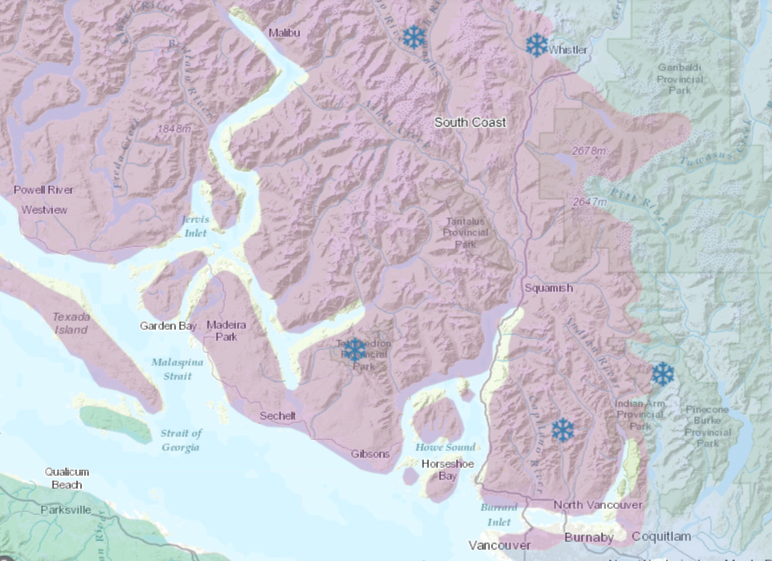Water supply will be harder to predict this summer because the pandemic is changing people’s behaviours.
“Due to the COVID pandemic, it’s completely uncertain what the water demand will be here on the Coast,” said Sunshine Coast Regional District (SCRD) infrastructure services general manager Remko Rosenboom.
Already, people are using more water, with demand up by “several” percentage points, he said during his water supply update at an April 16 infrastructure committee meeting, citing a number of possible causes for the increase, including the simple fact that people are washing their hands more often.
Sunshine Coast residents are expected to stay put this summer, too, while second-home occupation is reportedly up.
Rosenboom acknowledged fewer tourists will be flooding the Sunshine Coast, but that drop in demand could be offset by an increase in gardening by residents and renewed focus on growing vegetables – an important detail because last year watering restrictions were relaxed to allow vegetable garden watering up to Stage 3.
Water supply predictions are also being complicated by changes in how SCRD staff gather data from Tetrahedron Provincial Park.
Staff haven’t been able to collect snowpack data in April – considered the most important month for predicting snow melt – because the work would force them to break physical distancing guidelines.
Snowpack data is a “very important tool” for predicting how long it will take before the system begins relying solely on new precipitation. “It’s one piece of the puzzle, but a very important one,” said Rosenboom.
After the meeting he told Coast Reporter, “Physical measurements are always preferred,” but said the staff’s analysis “is the best possible under the current circumstances with the data available.”
A two-year-old weather station located at the Chapman snow course and operated by a Vancouver Island University research lab has also broken for the second time, meaning data can’t be collected that way, either.
Rosenboom said the university is also facing issues of how to fix it because of COVID-19 public health measures.
To get around the data gaps, staff are relying on four other snow survey weather stations, two near Whistler and two across Howe Sound at Palisade Lake, and Disappointment Lake at the head of Coquitlam River.
Based on the information from those stations, “the snow accumulation should be at about average at Tetrahedron as well,” he said.
Another important indication for water supply is weather, since it can change how quickly snow melts. So far, this spring has been cooler and much drier, leading to “significantly delayed snowmelt,” said Rosenboom. So far in April, there were 3.6 mm of precipitation in Sechelt, compared with the 10-year average of 70 mm.
Gibsons director David Croal said it was “alarming” that local data aren’t available, and that precipitation has been below average. “I don’t think we should be giving people false hope that they’re not going to be into Stage 4 water restrictions. If the weather patterns continue as they are, we’re in serious trouble,” he said.
But according to Rosenboom, it’s still too early to raise any alarm bells. “I think our water supply situation in general is such that every year we should expect that there might be a need to go to elevated water conservation stages,” he said.
Stage 1 water restrictions are set to take effect May 1, as they do every year.
The impact of COVID-19 is also affecting water projects.
Rosenboom said discussions are underway with the province to determine whether the SCRD will be authorized to move ahead with an alternative approval process required to secure a $9-million long-term loan to fund the Church Road well-field project.
In-person public participation events, including a future Water Summit, have been suspended, but more online “public participation opportunities” are expected, according an April 16 staff report.
The Town of Gibsons is still working to uncouple from the Chapman water system, but talks that had been expected to resume in March were delayed because priority was given to the pandemic response. The Town is also waiting for a permit from the province to bring a new well into service, and its ability to get Gibsons’ Zone 3 area off the Chapman system hinges on that.
Meanwhile, the hunt is on for more groundwater sources. Four test wells have been established in Langdale, on Harmon Road, West Elphinstone and East Porpoise Bay. A contractor is expected to be selected this summer, with a report summarizing the results anticipated for the third quarter of 2020.



